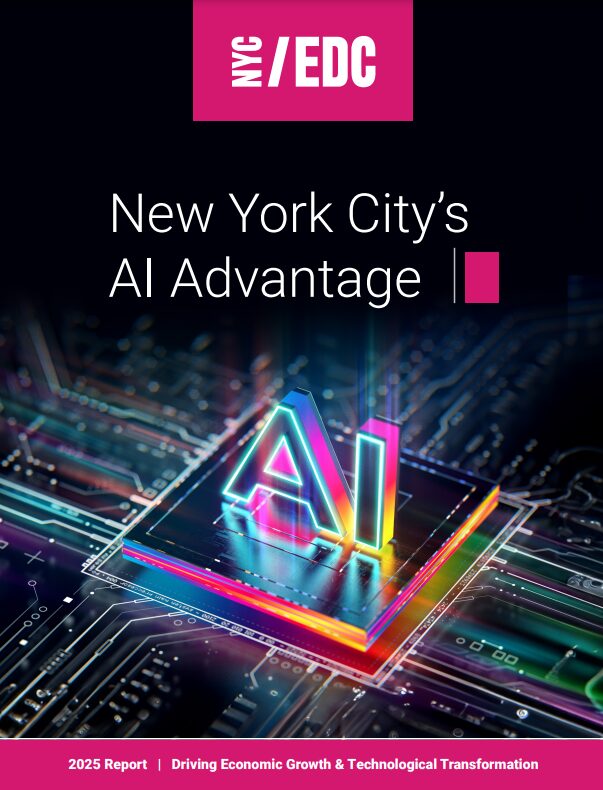This morning, the Mayor’s Office and the New York City Economic Development Corporation (NYCEDC) issued a report pushing for AI-friendly policies, seeking to “cultivate an innovative and collaborative AI ecosystem, attract investment, prepare NYC’s workforce for the jobs of tomorrow, and advance NYC’s standing as the premier global hub for Applied AI.”
The document announces a partnership between OpenAI and NYCEDC, and proposes that the Microsoft-backed AI venture be on the board of an “AI Advisory Council” that would advise the mayor’s office “on initiatives to ensure AI in the city supports the growth of the city’s economy across all sectors and businesses, both large and small.” Another stated commitment of the plan is $3 million for the establishment of “NYC AI Nexus,” which NYCEDC’s report says will “facilitate collaborations between NYC-based startups and founders with NYC’s businesses to identify, build, and ultimately adopt Applied AI solutions to ensure the continued competitiveness of NYC’s key industries.” The report also calls for AI literacy programs at New York Public Libraries, and NYCEDC CEO Andrew Kimball announces in the executive summary that city agencies are already piloting education programs in schools and universities to prepare New Yorkers for an “AI-driven economy.”
Persistent issues related to AI are acknowledged – such as the technology’s inordinate energy use, privacy concerns, and accountability – but NYCEDC and Kimball largely pass the buck, stating vaguely that such matters need to be addressed without proposing any specific action to do so.

The announcement comes as the American AI sector has been rocked by the emergence of Chinese competitor DeepSeek, which claims to do what OpenAI and other American startups do at a fraction of the cost int terms of financing and resources. AI-related stocks like Microsoft and Nvidia tumbled on Monday as DeepSeek topped the rankings in app stores, before rallying over the next couple of days. It is still unclear whether DeepSeek was able to achieve its impressive results through a totally endogenous effort, or whether the app actually piggybacks off work done by OpenAI and others, a process which experts call “distillation.”
Eric Adams’ declared push to make New York a “global hub” for AI is yet another demonstration of the tech industry’s political power, as politicians at the state and federal level are also pushing initiatives for the promulgation and development of AI technology. In 2024, New York Governor Kathy Hochul committed $275 million in state funds last year for Empire AI, a research collaboration with seven New York-based universities that she claimed would “harness the power of artificial intelligence and ensure this technology is being used for the public interest.” Just days ago, Hochul asked the state legislature for another $90 million despite the initial sum not being spent. At the federal level, Trump announced recently that a colossal $500 billion (more than the Apollo space program) is being allocated for a program dubbed Stargate over the next four years, which would involve the construction of 20 large AI datacenters across the country foe the benefit of interested entities like OpenAI, Oracle, and Nvidia, among others.
Silicon Valley heavyweights like Sundar Pichai (Google), Sam Altman (OpenAI), Jeff Bezos (Amazon), and Mark Zuckerberg (Meta), all contributed at least $1 million to Trump’s inauguration. Elon Musk, who also owns the AI technology Grok, has become an integral part of the administration, heading Trump’s DOGE initiative.












